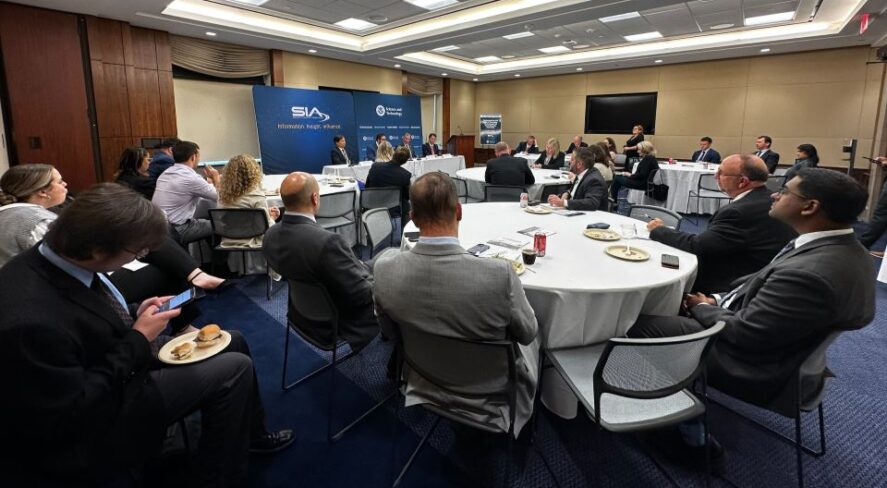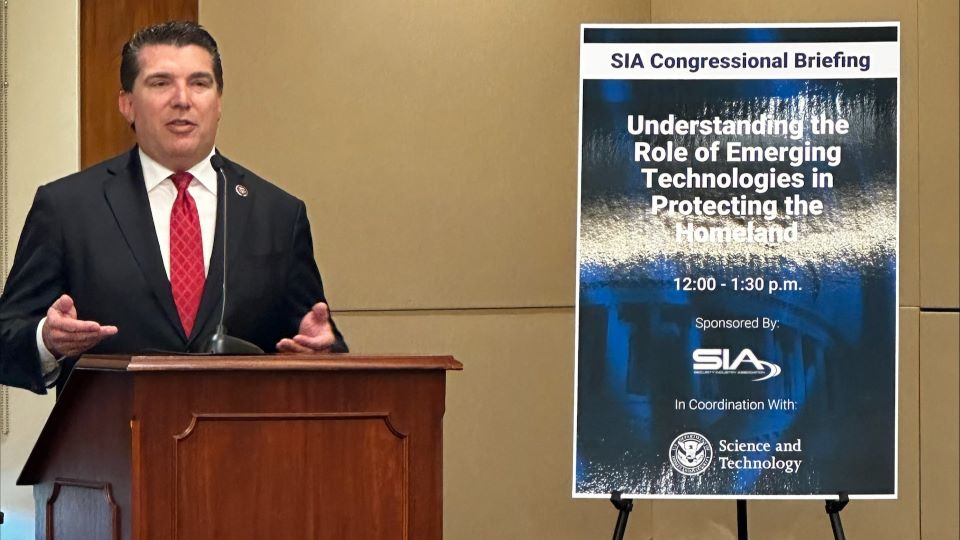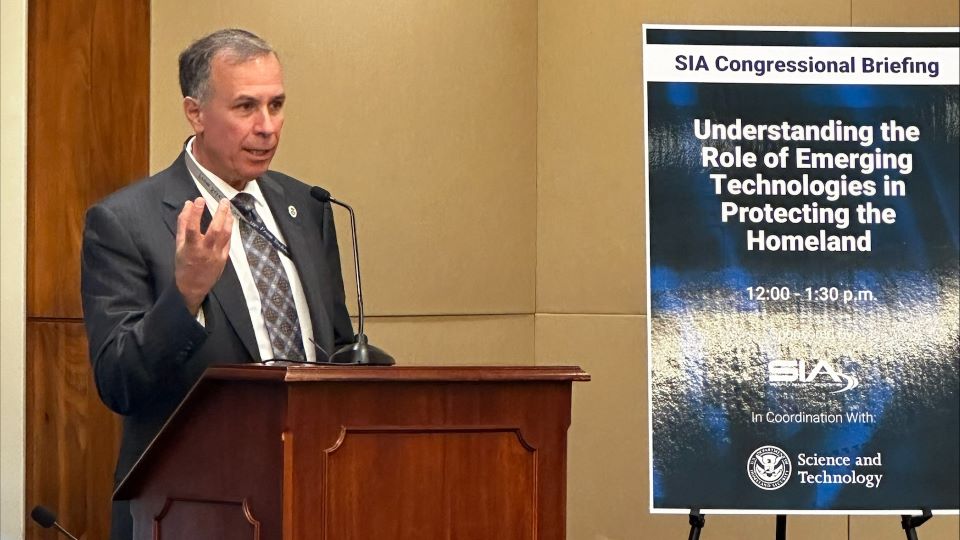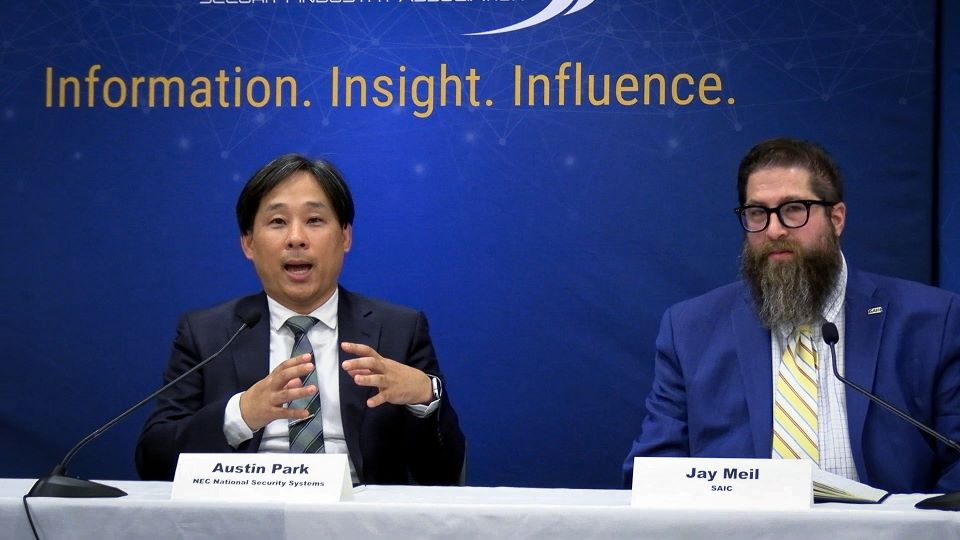President Biden’s New Executive Order and AI Policy Impacting the Security Industry

Industry Engagement in Washington, D.C., and Brussels, Belgium
If you haven’t noticed, artificial intelligence (AI) is one of the hottest topics in the media and policy circles in the U.S. and around the world. In Washington, D.C., there have been more than nine congressional hearings on AI since Sept. 1, 2023, and more than 50 bills have been introduced in Congress related to AI. The European Union is poised to enact sweeping regulations on AI systems that have been years in the making. And on Oct. 30, the Biden administration released the most significant executive order yet on AI.
Applications of AI critical to today’s safety and security applications have been underrepresented in the ongoing discussions but could nonetheless be significantly impacted by emerging policies. The most significant recent innovations in security products stem from AI-driven technologies, enabling groundbreaking improvements in capabilities to perform these missions, as well as better protect businesses and consumers and bolster public safety.
SIA and our members support development and use of AI technologies in ways that are human-centric, ethical and trustworthy and that mitigate potential risks. In part to help communicate and guide effective technology implementations that harness these innovations, SIA has formed its AI Advisory Board and Identity and Biometric Technology Advisory Board (IBTAB).
The Executive Order
On Oct. 30, President Biden signed a wide-ranging executive order (EO) on AI that sets priorities for addressing the use of AI systems by government agencies, promoting protections for consumers and workers, fostering innovation and preserving the U.S. leadership position in AI technology development.
The EO directs federal agencies to adhere to eight common-sense principles when governing the development and use of AI:
- Ensuring AI safety and security
- Promoting responsible innovation, competition and collaboration
- Supporting American workers
- Advancing equity and civil rights
- Standing up for consumers, patients and students
- Protecting Americans’ privacy and civil liberties
- Ensuring responsible and effective government use of AI
- Advancing American leadership abroad
While much of the order is focused on agency evaluation and reporting activities – and the full details on many aspects of implementation remain to be seen – the sector-specific focus of the order is encouraging, as are apparent efforts to take a use-case specific approach to identifying both benefits and potential risks.
There are several potential opportunities in the EO for SIA and the industry to continue proactive participation as stakeholders and subject matter experts in AI policy development. Additionally, there are directives to help small businesses that are developing or commercializing AI, as well as acquiring needed workforce talent that could be beneficial to the security industry. There are other aspects that deserve close attention and monitoring, such as any potential for voluntary standards to become requirements, and regarding independent agencies that the EO encourages to take action, that such agencies like the Federal Trade Commission continue to act within the limits of their congressional mandates. SIA continues to receive feedback from our members as the EO and its implications are further analyzed and understood.

U.S. Congress
On Oct. 26, 2023, SIA hosted a congressional briefing, Understanding the Role of Emerging Technologies in Protecting the Homeland, to draw attention to the importance of AI-driven technologies to current and future homeland security missions.
Guest speaker Rep. Jay Obernolte (R-Calif.) cautioned against imposing excessive restrictions on the development of artificial intelligence, noting that AI “will be a potent catalyst for increasing our nation’s economic prosperity. From the printing press to the internet, technological innovations are always disruptive, but those disruptions have led to substantial improvements in our standard of living. AI will be no different. As we take steps to regulate AI, we must do so in a way that guards against the potential harms of AI and protects American’s privacy without stifling innovation. That is the challenge ahead of us.”

Guest speaker U.S. Department of Homeland Security (DHS) Under Secretary for Science and Technology and DHS AI Task Force Co-Chair Dimitri Kusnezov extolled the potential benefits of AI and other emerging technologies, saying the present is a “unique moment” in history.
“We are remarkably lucky to be living at this moment in time,” Kusnezov said. He noted that technology tools, especially ones related to computer vision and data analysis, are already enhancing law enforcement and security in areas such as human trafficking, drug trafficking, cargo screening and border controls.
Jason Meil, director of data science for SAIC and SIA AI Advisory Board member, noted, “It’s really about what we can do to augment the workforce.”
“It’s a force multiplier…AI today is really about human-machine teaming,” said Meil. Machines fed massive amounts of data, he noted, can “find the signal in the noise and alert an officer,” an example of what he described as “augmented intelligence.”
Meil, though, did stress the importance of having standards, common definitions – especially regarding data labeling – and frameworks for the development of AI.

Austin Park, director of technology for NEC National Security Systems and member of SIA’s IBTAB, highlighted the value of public-private partnerships. Kusnezov, meanwhile, said that DHS is seeking “deeper partnerships with willing companies,” including ones that might involve cooperative research and development agreements.
SIA continues to engage with agencies and members of Congress working on policy and legislation regarding AI.
European Union – the AI Act
The EU is poised to enact sweeping regulations on AI systems if agreements can be reached on key sticking points before the end of the year. Earlier this month, SIA, ASIS International and the International Biometrics+Identity Association, on behalf of their European members, sent a joint letter to the E.U. Commission, member state representatives and key negotiators in Parliament, expressing concerns about the considerable expansion of blanket prohibitions in the Parliament’s proposal for the Act, an area where agreement is yet to be reached. The organizations urged that the final agreement maintain a technology-neutral approach to regulation and that the most stringent requirements should apply to use-case specific and truly high-risk applications, consistent with the Council’s approach.
“Otherwise, Member States could be left without many key tools which greatly improve their capacity to ensure their citizens experience a secure environment which protects their rights to the utmost degree, without privileging certain fundamental principles at the expense of others,” said the associations in their letter. “Moreover, these prohibitions do not only concern security; it would be damaging to the single market if the prohibitions were to be interpreted in a manner which limits the ability of EU developers and providers of innovative AI-driven technologies to compete.”
SIA will continue to provide updates as important discussions continue, and decisions are made regarding polices that impact used of advanced technologies critical to the security industry.
